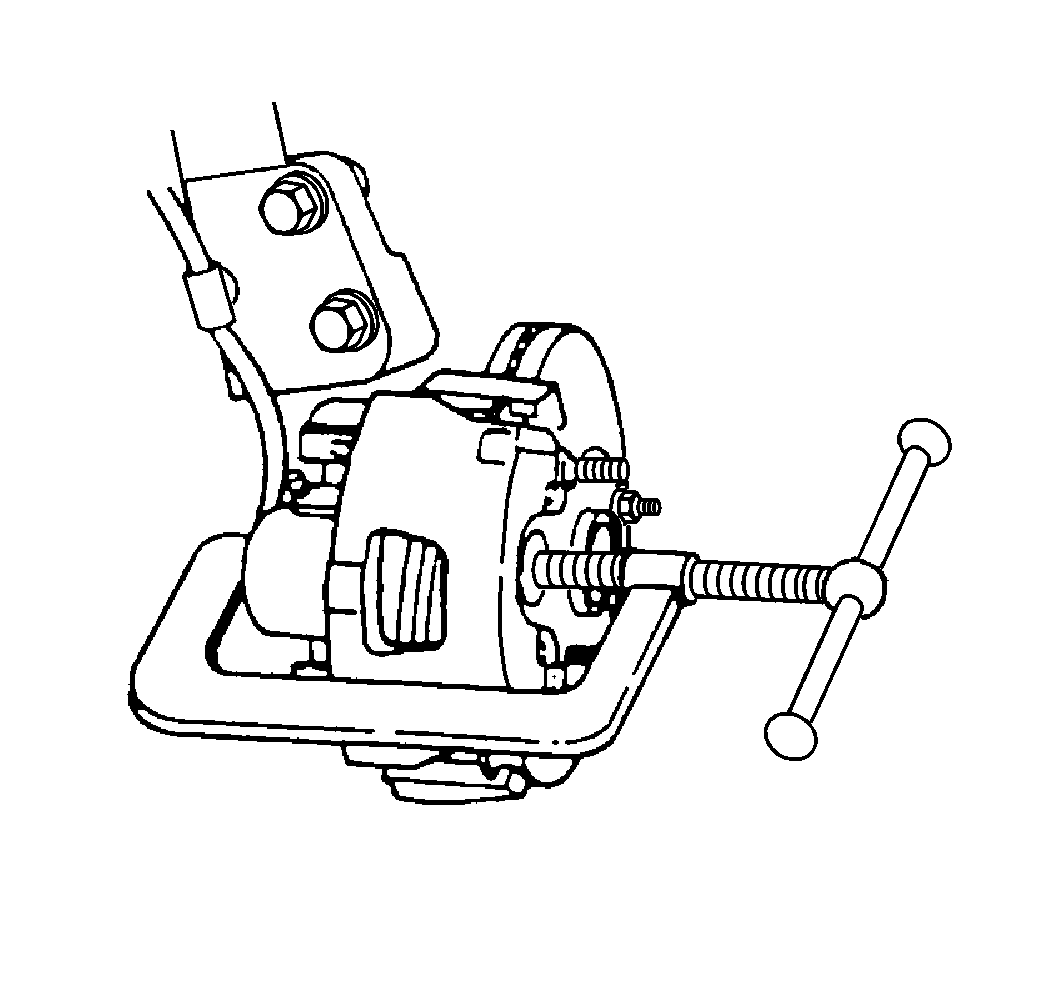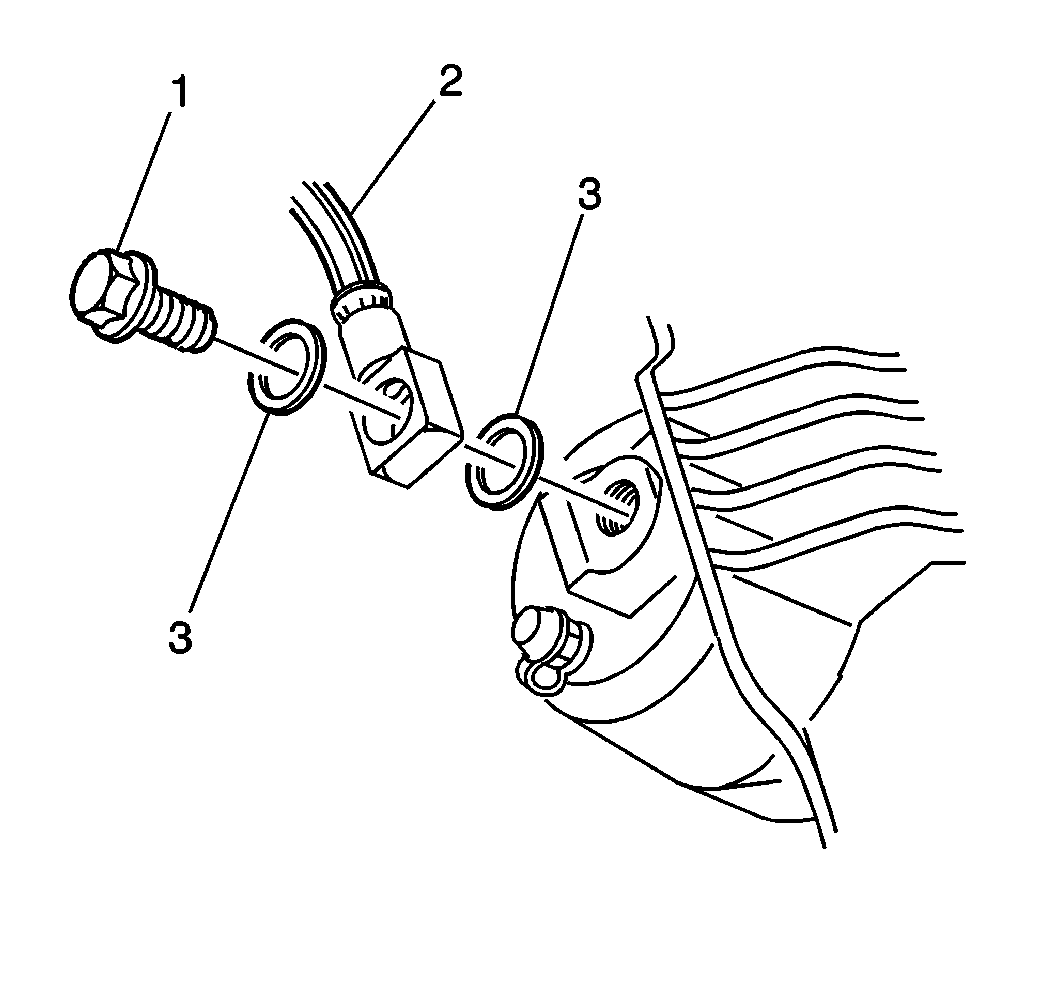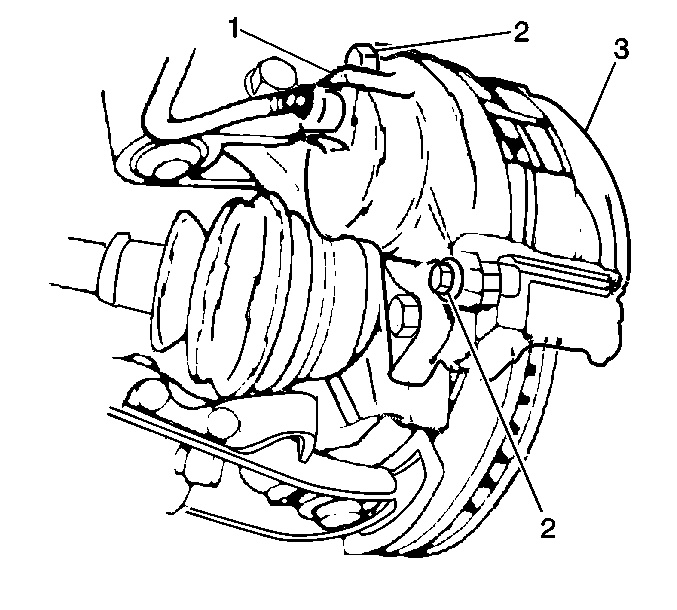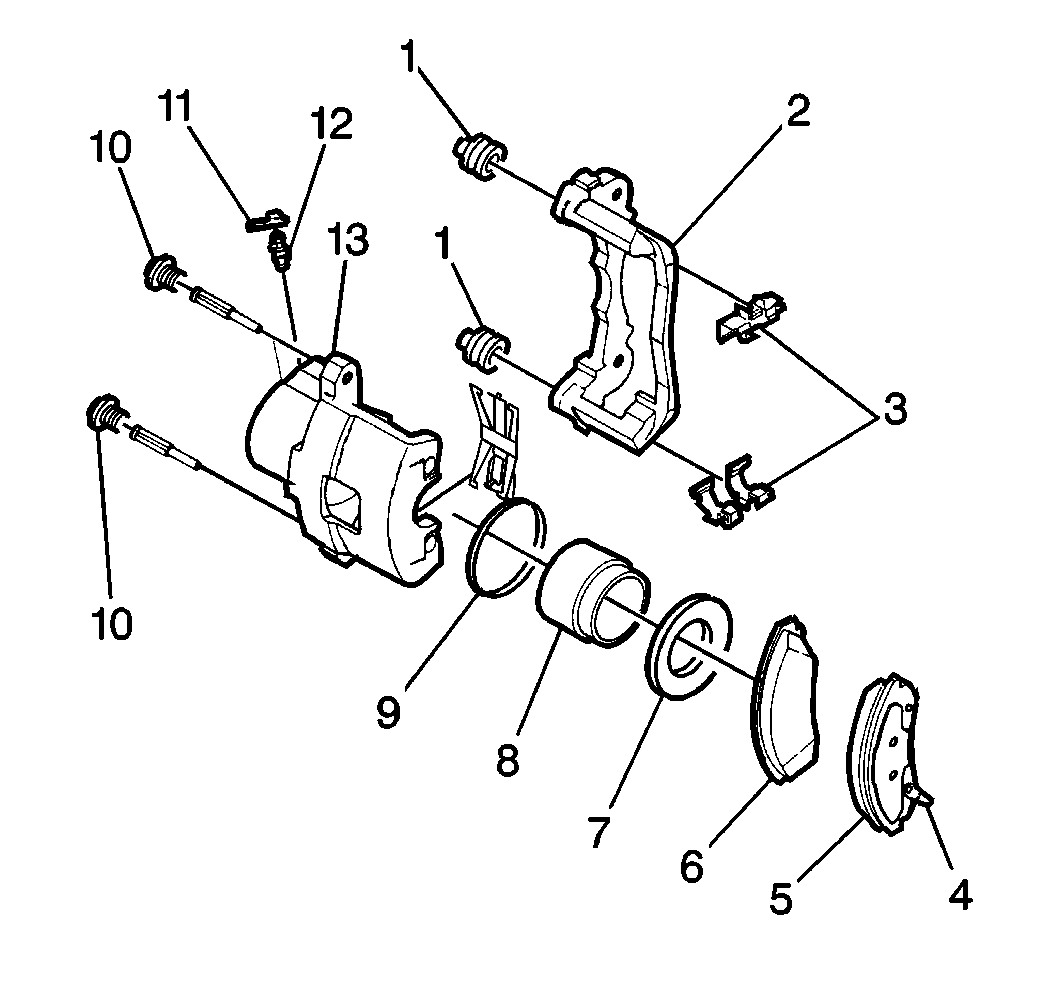Removal Procedure
- Remove 2/3 of brake fluid from master cylinder assembly.
- Raise and support the vehicle. Refer to Lifting and Jacking the Vehicle in General Information.
- Mark the relationship of the wheel to the hub in order to ensure proper wheel balance upon reassembly.
- Remove the tire and wheel assembly. Refer to Tire and Wheel Removal and Installation in Tires and Wheels.
- Reinstall 2 wheel nuts in order to retain the rotor to the hub.
- Push the piston into the caliper bore in order to provide clearance between the linings and the rotor:
- Remove the bolt (1) attaching the inlet fitting.
- Plug the caliper housing and brake hose in order to prevent fluid loss and contamination.
- Remove the caliper mounting bolts (2).
- Remove the caliper (3) from the rotor and the caliper bracket.
- Remove the 2 guide pins and the guide pin boots from the caliper bracket.
- Inspect the guide pins (10) and bores for corrosion.
- Inspect the boots for cuts or nicks.
- If damage to the guide pin boots, the guide pins, or the bores are found, replace the damaged component with new parts when installing the caliper.

| 6.1. | Install a large C-clamp over the top of the caliper housing and against the back of the outboard pad. |
| 6.2. | Slowly tighten the C-clamp until the piston is pushed into the caliper bore far enough to slide the caliper assembly off the rotor. |



Important: Do not attempt to polish away corrosion.
Installation Procedure
- Install the caliper (13) to the caliper bracket (2).
- Liberally coat the 2 caliper mounting bolts with silicone grease.
- Install the caliper mounting bolts (10) to the caliper bracket (2).
- Install the brake hose (2) with the inlet fitting.
- Remove the wheel nuts securing the rotor to the hub.
- Install the wheel and tire assembly. Align the index marks that were made during removal. Refer to Tire and Wheel Removal and Installation in Tires and Wheels.
- Lower the vehicle.
- Fill the master cylinder to the proper level with clean brake fluid. Refer to Master Cylinder Reservoir Filling .
- Bleed the entire brake system. Refer to Hydraulic Brake System Bleeding .
- Reinspect the fluid level.
- Retest the brake pedal feel. If brake sponginess is present, refer to Brake Rotor Thickness Variation Check .

Notice: Use the correct fastener in the correct location. Replacement fasteners must be the correct part number for that application. Fasteners requiring replacement or fasteners requiring the use of thread locking compound or sealant are identified in the service procedure. Do not use paints, lubricants, or corrosion inhibitors on fasteners or fastener joint surfaces unless specified. These coatings affect fastener torque and joint clamping force and may damage the fastener. Use the correct tightening sequence and specifications when installing fasteners in order to avoid damage to parts and systems.
Tighten
Tighten the two bolts to 31 N·m (23 lb ft).

Tighten
Tighten the inlet fitting bolt to 50 N·m (37 lb ft).
